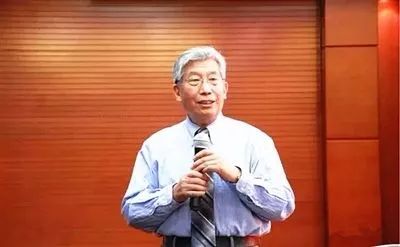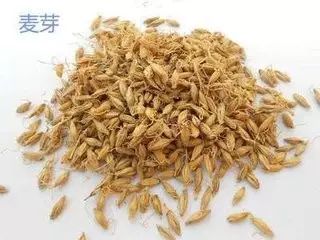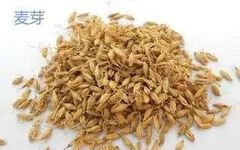

Hao Wanshan, born in November 1944, graduated from Beijing University of Chinese Medicine. He is currently a professor and doctoral supervisor at Beijing University of Chinese Medicine. With 50 years of clinical practice, he emphasizes emotional regulation for patients and is particularly skilled in treating emotional disorders. Qi deficiency (气虚) is a term in Traditional Chinese Medicine (TCM) that refers to a series of pathological changes and symptoms caused by insufficient vital energy (元气). Qi is the most fundamental substance in the human body, formed by the essence (精气) from the kidneys, the energy (气) absorbed and transformed by the spleen and stomach from food, and the clear air (清气) inhaled by the lungs. Qi deficiency generally refers to symptoms such as physical weakness, pale complexion, shortness of breath, fatigue in the limbs, dizziness, sweating upon exertion, and a weak voice. It includes the deficiency of original qi (元气), ancestral qi (宗气), and defensive qi (卫气), as well as a reduction in the functions of qi in promoting, warming, defending, consolidating, and transforming, leading to decreased or weakened bodily functions and reduced resistance to disease. Fundamentally, human life activities are movements of the rise and fall of vital energy. Qi deficiency is a common syndrome, often caused by congenital insufficiency, malnutrition, aging, prolonged illness, major surgery, and excessive fatigue. Clinically, qi deficiency can also include lung qi deficiency, heart qi deficiency, spleen qi deficiency, and kidney qi deficiency.
What are the manifestations of a person with a qi deficiency constitution?
1 People with qi deficiency generally have a dull complexion and poor physical strength Individuals with qi deficiency often have a pale, lackluster complexion, sweat easily, and experience shortness of breath. While a person with sufficient qi can climb several flights of stairs without issue, a person with qi deficiency may feel breathless after just three flights, with a rapid heartbeat. 2 People with qi deficiency are taciturn and easily fatigued Those with qi deficiency tend to be quiet and reluctant to speak, unlike those with sufficient qi who are energetic and actively participate in activities and express opinions. A person with qi deficiency prefers to avoid trouble. What does being taciturn mean? It means that when you talk to them, they are reluctant to respond, and even a few extra words can tire them out. People with qi deficiency also easily feel fatigued, often feeling tired after a short walk, while others do not feel tired. Additionally, they often seek support when standing or sitting, appearing listless. In contrast, those with sufficient qi stand and sit upright and speak with confidence. I once observed a martial arts star who truly embodied the saying “standing like a pine, sitting like a bell,” with a strong voice.3 People with qi deficiency are sensitive to cold and wind, and easily catch colds Individuals with qi deficiency are sensitive to cold and wind, unable to tolerate even slight chills, often sneezing, and are prone to catching colds, especially children. Some children may just recover from a cold, only to catch another after a visit to kindergarten, causing concern for their families. This is actually a manifestation of qi deficiency. In summary, qi deficiency indicates insufficient kidney qi, spleen qi, and lung qi, with kidney qi being inherited from the mother and varying in abundance. Additionally, spleen qi is crucial; often, it is insufficient spleen qi that leads to insufficient lung qi, making those with spleen qi deficiency more susceptible to external pathogens. 4 People with qi deficiency easily experience abdominal bloating after eatingIndividuals with qi deficiency often experience abdominal bloating after eating because their spleen struggles to transform food effectively, leading to food stagnation in the body and resulting in bloating.5 People with qi deficiency have loose stoolsIndividuals with qi deficiency find it difficult to form solid stools because their qi is insufficient to hold the stool, leading to easy slippage.6 What does the tongue of a person with qi deficiency look like?People with qi deficiency often have teeth marks on their tongues. This occurs because individuals with qi deficiency have excess dampness that has not been expelled from the body, leading to swelling of internal organs and skin over time. However, this swelling is generally not visible; while we cannot see the swelling of internal organs, the swelling of the skin is often not very apparent. However, a swollen tongue, which is pressed against the teeth for 24 hours, will show many teeth marks when we stick it out. A thick coating on the tongue indicates heavy internal dampness. Generally, a normal tongue coating should reveal the tongue body, but a certain type of tongue coating can cover the entire tongue, obscuring the tongue body, which in TCM is referred to as a “full tongue coating,” indicating heavy internal dampness. The thicker the coating, the heavier the internal dampness. In addition to a full tongue coating, the thickness of the coating can also indicate the severity of internal dampness. A tongue with cracks in the middle indicates spleen and stomach qi deficiency. If the teeth marks on the sides of the tongue are not prominent, but the cracks in the middle are very obvious (everyone has cracks in the middle of their tongue, but in normal individuals, these cracks are not prominent because the tongue coating covers them, making them barely visible), and if they are very pronounced, it indicates poor spleen and stomach function, with insufficient spleen qi unable to nourish the tongue coating, leading to noticeable cracks. Individuals with qi deficiency often have a swollen tongue. Those with a qi deficiency constitution often have a swollen tongue (there are also thin tongues, but they still have teeth marks, which is also a sign of spleen qi deficiency). A tongue without coating or with a very thin coating indicates a deficiency of righteous qi, especially insufficient spleen and stomach qi. Individuals with this tongue appearance fall into two categories: one is those who have suffered a major illness that has affected their spleen and stomach, leading to a loss of tongue coating. Such individuals need to focus on nourishing the spleen and stomach, as sufficient spleen and stomach qi is essential for recovery. The other category consists of those who have harmed their spleen and stomach due to improper diet, which is not a major illness. I once encountered a gentleman whose tongue was completely smooth without any coating. I asked him, “How is your stomach qi so deficient?” He replied that he drinks heavily every day. How could his stomach not be harmed?
Maintenance Strategies for Individuals with Qi Deficiency Constitution
For those whose stomach has been harmed, leading to insufficient stomach qi, the immediate priority is to nourish the stomach qi. Therefore, it is advisable to reduce water intake and drink malt tea, which can help generate stomach qi. Formula: Raw malt (生麦芽) 30-60 grams. Method: Brew as tea. Note:1 It is essential to use raw malt, which has the function of generating stomach qi. Do not use roasted malt, as it reduces qi, while raw malt promotes qi. Some experienced TCM practitioners, when encountering severely ill patients with no tongue coating, will not only prescribe medicine but also advise them to drink malt tea to quickly generate stomach qi, continuing until the tongue coating reappears, indicating recovery.2 You can also use 3 grams of raw astragalus (生黄芪), 6 grams of Chinese yam (怀山药), and 9 grams of raw malt (生麦芽), boiled in water to drink as a substitute for tea, which is also beneficial for promoting stomach qi over several weeks.
Formula: Raw malt (生麦芽) 30-60 grams. Method: Brew as tea. Note:1 It is essential to use raw malt, which has the function of generating stomach qi. Do not use roasted malt, as it reduces qi, while raw malt promotes qi. Some experienced TCM practitioners, when encountering severely ill patients with no tongue coating, will not only prescribe medicine but also advise them to drink malt tea to quickly generate stomach qi, continuing until the tongue coating reappears, indicating recovery.2 You can also use 3 grams of raw astragalus (生黄芪), 6 grams of Chinese yam (怀山药), and 9 grams of raw malt (生麦芽), boiled in water to drink as a substitute for tea, which is also beneficial for promoting stomach qi over several weeks.
Wishing everyone health and happiness during the May Day holiday!
Follow the acupoint diagram for quick reference to acupoints👇
If you find this useful, please “share” it with your friends

